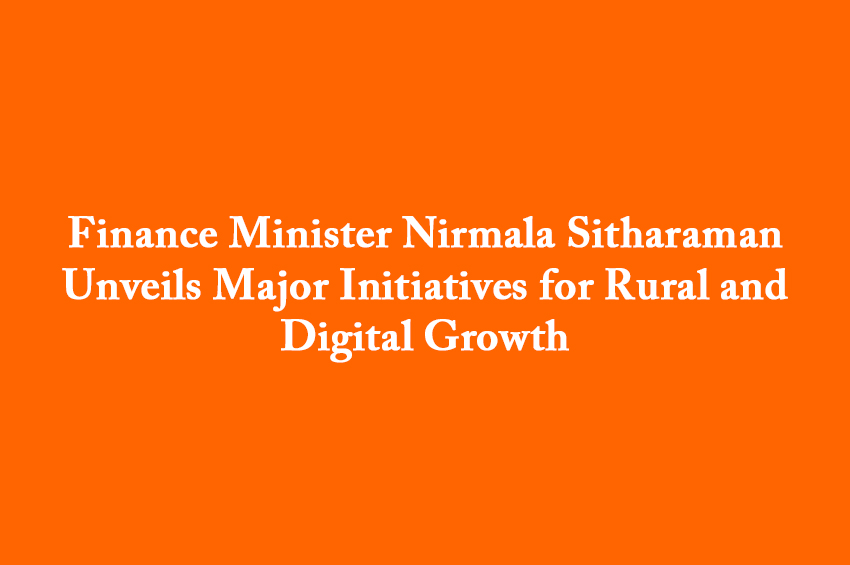Winning Bizness Desk
Highlights key provisions aimed at boosting growth in major sectors
Mumbai The Union Budget has introduced several initiatives designed to strengthen India's key sectors, including agriculture, education, health, infrastructure, and technology. The government has earmarked significant funds to improve infrastructure, with a focus on developing urban transport systems and strengthening rural connectivity. A special emphasis has been placed on enhancing digital infrastructure, promoting green energy, and expanding the electric vehicle market.
Agriculture and Rural Development
A substantial amount has been allocated to the agricultural sector, including subsidies for crop insurance and investment in irrigation systems. The government plans to offer low-interest loans to farmers to ensure better access to capital. There are also new initiatives aimed at improving rural health infrastructure and providing farmers with modern technologies for sustainable farming practices.
Education and Skill Development
The Union Budget includes a major push towards education with a proposal to enhance digital learning resources and create more skill development programs to address the skill gap in various industries. A new scholarship scheme for underprivileged students has also been introduced to support higher education.
Health:
To improve healthcare access, especially in rural areas, the government has allocated more funds to build healthcare infrastructure and enhance medical research. Furthermore, the budget aims to strengthen the existing health insurance schemes to cover more vulnerable sections of society.
Technology and Innovation
In an effort to promote innovation, the government is investing heavily in technology and AI-driven industries. Special tax incentives have been introduced for startups in the technology and research sectors. The government has also proposed the creation of a National Data Center to foster data security and digital economy growth.
Green Energy and Environment
There is a clear focus on environmental sustainability, with increased investment in renewable energy sources like solar and wind power. The government has announced plans to scale up green hydrogen production and electric vehicle infrastructure to reduce carbon emissions.
Economic Growth and Fiscal Policy
The government is projecting a 7% GDP growth rate for the coming fiscal year, with fiscal consolidation efforts planned over the next few years. While the budget focuses on expanding public spending on infrastructure, it ensures that debt levels remain sustainable through improved tax collection and reduced fiscal deficits. The fiscal deficit target for 2025 has been set at a manageable level, with a focus on long-term economic stability.
Inflation Control and Tax Reforms
Measures aimed at curbing inflation include subsidies for essential commodities and changes to indirect taxes to reduce the burden on consumers. The government is looking to streamline the Goods and Services Tax (GST) system to make it more business-friendly and less burdensome for small and medium enterprises. Additionally, corporate tax reforms are expected to attract foreign investment and encourage business expansion in key sectors like technology and manufacturing.
Boost to Infrastructure and Job Creation
The budget’s emphasis on infrastructure development is expected to have a multiplier effect on the economy, creating millions of jobs, particularly in construction and manufacturing. It will also foster demand in related industries such as steel, cement, and real estate. Increased investment in rural infrastructure and digital connectivity is expected to bridge urban-rural divides, providing economic opportunities across the country.
Impact on Employment and Startups
The proposal to boost skill development programs and provide better job opportunities, particularly for youth, is expected to reduce unemployment rates. Moreover, the government’s push to support startups and new-age businesses through tax incentives and financial assistance is likely to encourage innovation and entrepreneurship, contributing positively to job creation and economic growth.
Environmental Sustainability and Green Economy
By promoting green energy, electric vehicles, and carbon reduction initiatives, the budget addresses the need for a sustainable economy while providing long-term economic benefits in energy savings and job creation within the green sector. Investments in renewable energy are expected to enhance energy security and create new employment opportunities in emerging industries.


